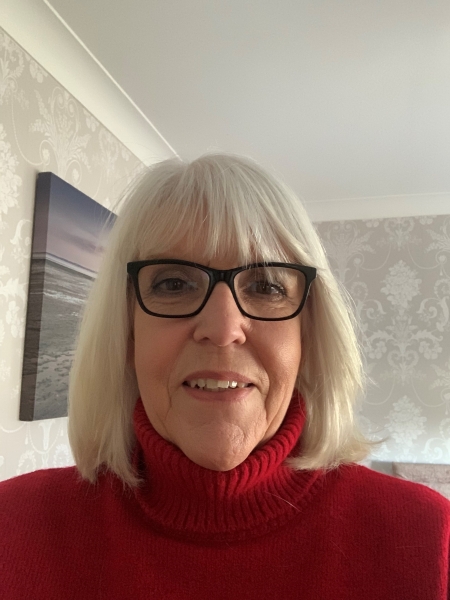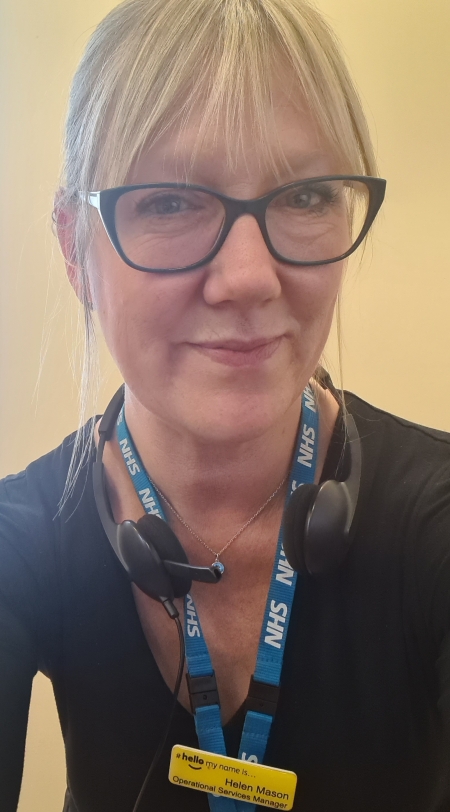Publish date: 15 May 2025
'A vital cog in a much larger system’ – how our clinical governance team are contributing to safer care for all
Our clinical governance nurses at Northumbria Healthcare focus on ensuring and improving the quality and safety of patient care within our trust. This involves a broad range of activities related to maintaining high standards, continuous improvement and fostering a culture of excellence in care.
Meet our clinical governance nurses and find out why they enjoy their roles and advocate for the health and wellbeing of our nurses.
Bridgett McDonagh, clinical governance lead for medicine and emergency care business unit

I began my nursing career at Northumbria in 2007, qualifying as a staff nurse within the North Tyneside locality, where I delivered care to housebound patients. I later trained as a specialist district nurse, leading a team of community staff nurses for several years.
My career then took me into urgent care, where I triaged patients requiring immediate or emergency attention. It was in this role that I found my passion for Clinical Governance and patient safety. I became actively involved in investigations and audits, eventually progressing from managing clinical services to becoming a Regional Clinical Governance Manager.
In 2022, I returned to Northumbria as the Clinical Governance Lead for the Medicine and Emergency Care Business Unit. Most recently, I completed training with NHS England to become a Patient Safety Specialist (PSS), qualifying in March 2025. This training has significantly deepened my understanding of patient safety, including human factors and the vital role of safety culture.
As clinical governance lead, I provide expert advice and oversight on governance within the business unit. I support colleagues with specialist knowledge on all aspects of clinical governance and patient safety, representing the unit at key committees such as health and safety and medical devices. I also support the senior leadership team in fulfilling our duty of candour obligations, ensuring transparency, accountability, and a culture of learning when things go wrong.
A central part of my role involves identifying themes and trends from incident investigations, ensuring that insights lead to tangible improvements and shared learning to enhance patient safety. I also provide direct support to nursing colleagues involved in incidents—offering both statutory guidance, including duty of candour, and education around PSIRF (Patient Safety Incident Response Framework).
Importantly, I continue to work clinically. Staying hands-on allows me to maintain up-to-date clinical knowledge and view incidents from a frontline perspective, helping me better understand the complexities nurses face today.
What I love most about my role is being a vital cog in a much larger system—contributing to safer, more effective care for all.
Karen Collingwood, clinical governance lead for child health and clinical support

I began my career in healthcare as a health care assistant, which inspired me to pursue nurse training. I qualified as a registered nurse in 1997, with my first role at Hexham General Hospital. Shortly afterward, I gained experience in district nursing before moving to Newcastle Hospitals, where I held a variety of roles across multiple specialties. This broad clinical exposure laid a strong foundation for my transition into clinical governance.
My journey in clinical governance began within the clinical effectiveness team at Newcastle, eventually leading to a nurse specialist role in the patient safety team. After 20 years of service in clinical governance at Newcastle, I joined Northumbria Healthcare two years ago as a clinical governance Lead, supporting both the clinical support and child health teams—a move I’ve never regretted.
Working in this role is incredibly dynamic; no two days are the same. We provide governance oversight across our business units and offer expert advice and guidance to colleagues, including nurses, on a wide range of topics such as complaints, claims, and incidents. We represent our business unit at various committee meetings and produce reports covering areas like health and safety, medical devices, contamination, and learning from incidents.
Another important element of our work is supporting staff involved in incidents. This ranges from practical guidance around duty of candour to facilitating emotional support for both staff and patients. As a former nurse, I understand the emotional toll such situations can take, and I’m committed to providing compassionate, thoughtful support.
By analysing patterns in both patient and staff incidents, we play a key role in driving learning and ensuring that necessary changes to practice are not only made but are effective in improving safety and outcomes.
Maureen Evans, governance lead for community business unit

I began my career with Northumberland County Council in 1993 as an administrative assistant. Over time, I progressed to the role of financial assessment officer, then transitioned to care manager. My passion for helping others led me to pursue qualifications as a social worker. Following the merger between the trust and the County Council, I managed a joint health and social care team. This opened the door for me to move fully into healthcare, initially working on various projects as an Operational Manager, and eventually taking on the role of operational manager for the palliative care service—a position I held for ten years.
During that time, I developed a strong focus on governance, managing responsibilities such as incident reporting, investigations, and oversight of clinical staff and service development. About a year ago, I was invited to take on the role of community governance lead, expanding my focus from a single service to the governance needs of the entire business unit.
In this role, I have broadened my expertise through additional training and now provide support across a wide range of services. My responsibilities include overseeing incident investigations, facilitating after action reviews, ensuring compliance with duty of candour and health & safety regulations, and supporting teams to embed governance in daily practice.
I take pride in supporting nurses and other staff to better understand and meet governance requirements, which ultimately strengthens patient safety and protects the trust’s reputation. One of the most rewarding aspects of my role is building strong working relationships across the Business Unit and ensuring our services are safe and effective for both patients and staff.
Helen Mason, clinical governance lead for surgery business unit

In my current role, I provide site leadership at Hexham General and Haltwhistle Hospitals, while also managing the clinical governance team. Nursing has always been my passion—I qualified as a general nurse in 1995 and have since gained experience across a range of specialties, including stroke rehabilitation and surgery, primarily within Newcastle and Hexham Hospitals.
In 2000, I transitioned into a community management role, where I led intermediate care services and helped develop discharge support initiatives in partnership with Northumberland County Council. This work naturally led me into governance, where I have worked since 2007.
Today, alongside a matron, I oversee four wards and their teams. My responsibilities include daily staff support, managing sickness and HR-related matters, and collaborating on quality improvement projects. I also assist with complex discharges when needed.
In my governance capacity, I provide advice and support to nursing staff on incidents, accidents, and compliance with regulatory standards. I lead investigations into complaints and incidents, always aiming to identify opportunities to improve patient care, staff experience, and service quality. My focus is on fostering a culture of learning rather than blame. I ensure investigations are conducted fairly and transparently, and I make myself available to explain processes and provide support to staff throughout investigations or HR proceedings.
What I value most in my role is the people. I enjoy spending time with both staff and patients—while I’m no longer in a hands-on clinical role, I remain deeply committed to supporting those who deliver and receive care, making a meaningful difference in their experiences every day.
